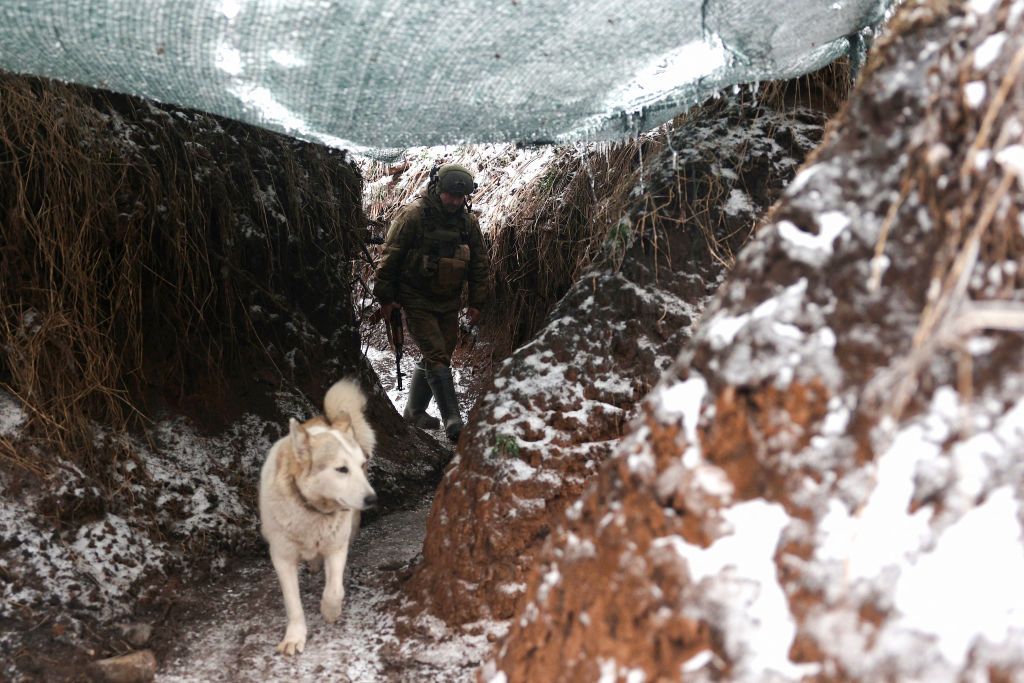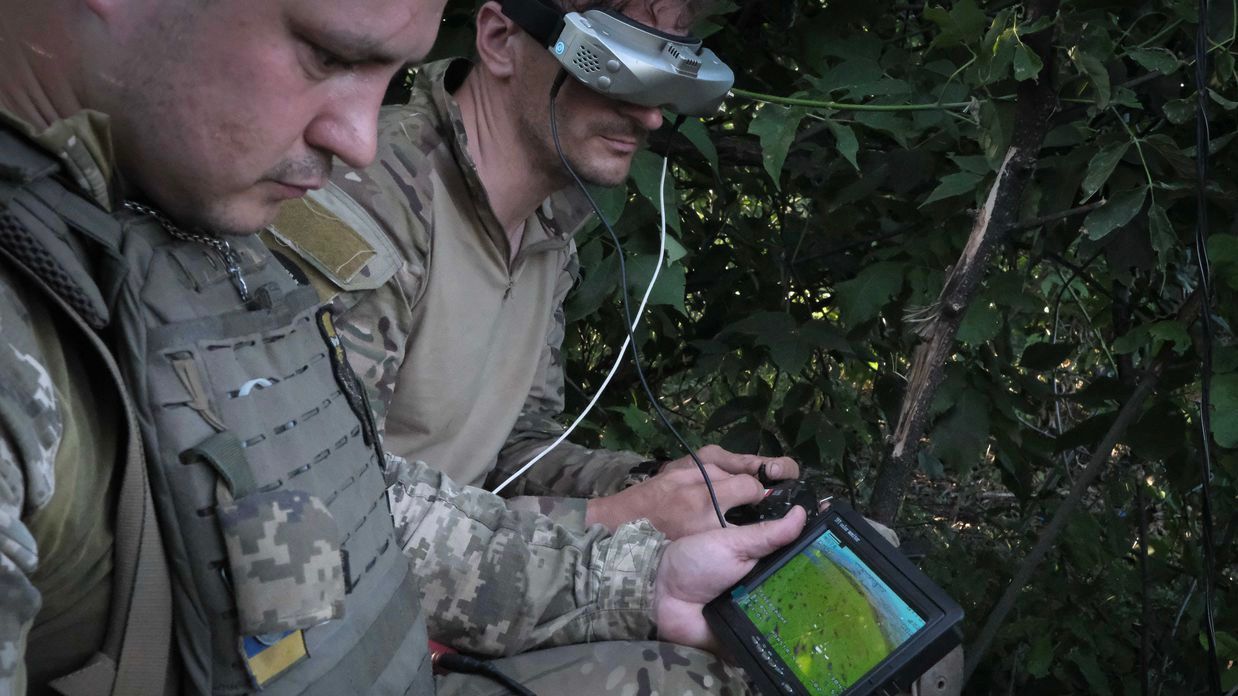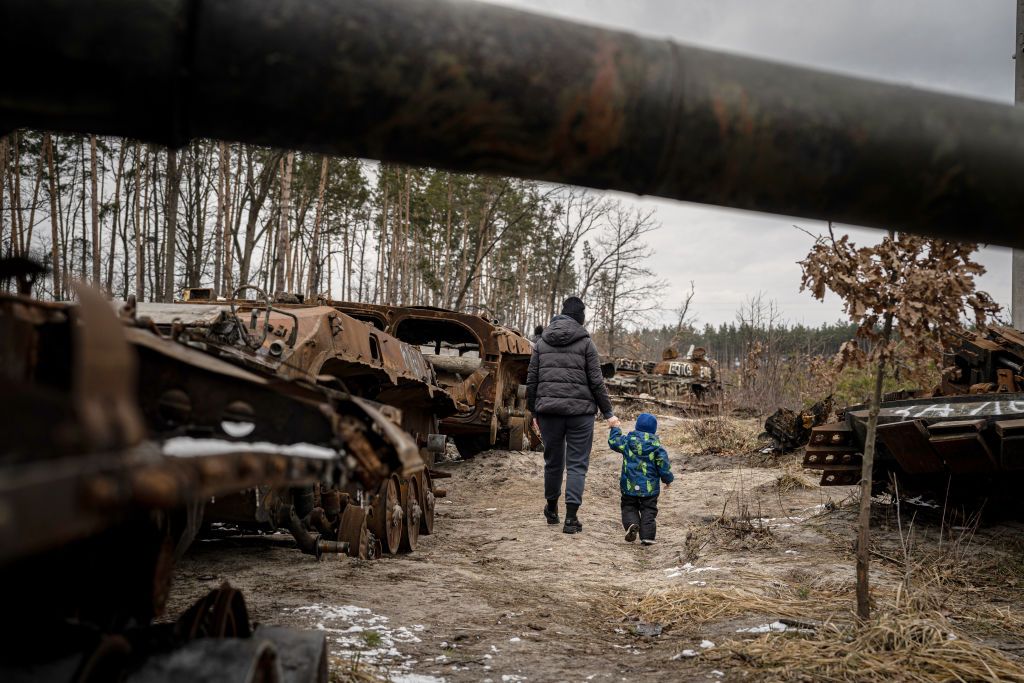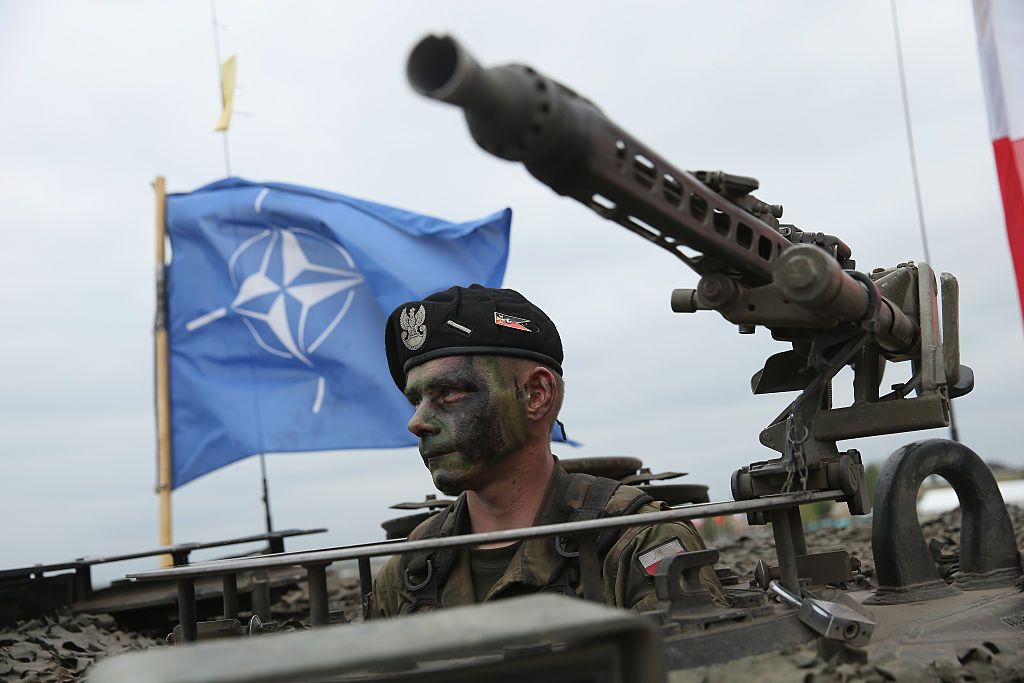Ukraine war latest: Government allocates record $466 million to military fortifications

Key developments on Jan. 19:
- Government allocates record $466 million to fortifications
- Russian official: Debris from drone strike causes fire at oil depot in Bryansk Oblast
- Russian media: Russia developing cheaper version of Shahed drone
- Politico: Democrats mull 'protecting' Republican House Speaker to secure Ukraine aid
- Bloomberg: EU aims for 13th Russia sanctions package in February
Ukrainian government has allocated around Hr 17.5 billion ($466 million) for the construction of fortifications, Prime Minister Denys Shmyhal said on Jan. 19, calling it a "record amount."
Before the winter, authorities received some criticism for slow progress on fortifying defensive lines. A group was established in November to coordinate fortification efforts.
This newly announced sum will also be used to purchase necessary equipment and non-explosive barriers, the prime minister said during a governmental meeting.
"We are allocating the funds to specialized departments and regional state administrations," Shmyhal noted.
Speaking at a press conference in December, President Volodymyr Zelensky said that Kharkiv Oblast boasts the strongest fortifications. The president added that he had appealed to authorities in other regions to reach the same standards.
Responding to a question by the Kyiv Independent about why Ukraine passed a decision on fortifications only in November, Zelensky said the efforts have been ongoing since the start of the full-scale war, and the recent measure serves to reinforce the defenses further.
Russian official: Debris from drone strike causes fire at oil depot in Bryansk Oblast
Air defenses in Russia's Bryansk Oblast "intercepted" a drone on the morning of Jan. 19, which fell and started a fire at an oil depot, according to Alexander Bogomaz, the regional governor.
Reports of drone attacks in Russian regions bordering Ukraine have increased in recent months.
Bogomaz said the drone was "intercepted" using electronic jamming methods over the city of Klintsy, some 100 kilometers north of Ukraine's Chernihiv Oblast.
It fell from the sky and landed at the Klintsy oil depot, where it started a fire, Bogomaz claimed. He added that 13 fire trucks were brought in by Russia's Ministry of Emergency Situations and other authorities to help extinguish the blaze.

Videos shared on Telegram showed a fire and a large plume of smoke. As of 8 p.m. Moscow time, emergency workers were still putting out the fire, according to the regional governor.
There were no casualties, according to preliminary information, Bogomaz said.
He attributed the attack to Ukraine, which has not commented on the drone strike at the time of this publication.
Ukraine's Strategic Industries Minister Oleksandr Kamyshin said on Jan. 18 that a domestically produced drone flew 1,250 kilometers to strike a target near St. Petersburg, a previous reported attack.
The drone reportedly hit an oil depot.
Russian Defense Ministry officials have also claimed a series of drone interceptions over the past few weeks. Drones struck fuel and energy facilities in Russia's Oryol Oblast on Jan. 9, reportedly injuring three people, the regional governor said.
Russian media: Russia developing cheaper version of Shahed drones
Russia is developing a cheaper version of the Iranian-made Shahed drone called the "Hawk," Russian state-controlled media TASS reported on Jan. 18, citing the Russian military design bureau "Stratim."
The drone will allegedly be cheaper than the Iranian-made Shahed drone, which is in frequent use by Russia in its war against Ukraine, and be made "entirely out of commercial components."
According to the Russian bureau, the Hawk has a range of 350 kilometers and can be equipped with high-explosive warheads with a payload of 16 kilograms.
TASS claimed the drone will be used as a "pseudo-cruise missile," or a "decoy target" against Ukrainian air defense systems.
The bureau is allegedly completing a series of flight tests, and the drones will be completed in the first half of 2024.
Russia has used Shahed drones to indiscriminately attack Ukraine.
Russian forces launched 33 Shahed-type attack drones at Ukraine on Jan. 18 alone, 22 of which were shot down by Ukraine.
Politico: Democrats mull 'protecting' Republican House Speaker to secure Ukraine aid
Some Democrats consider protecting Republican House Speaker Mike Johnson's gavel to win his support for the bipartisan deal on border security and Ukraine aid, drafted in the U.S. Senate, Politico reported on Jan. 19.
As early as next week, a bipartisan group of negotiators is expected to unveil the deal in the Senate, including provisions on immigration policy and funding for Kyiv. Despite some concessions made by the White House, many worry that the deal will not pass by House Republicans.
The funding request of over $110 billion, including around $61 billion for Ukraine, has been stuck in Congress since autumn 2023.
Hoping to secure assistance for Kyiv after the Pentagon said that the current funds ran out, several Democratic lawmakers reportedly contemplate throwing their votes behind Johnson if more hardline members of his party attempt to oust him.
This would be a major strategy shift, as the Democratic Party refused to protect Johnson's predecessor, Kevin McCarthy, who was considered less conservative than the current speaker. McCarthy was ousted last October by far-right Republican conservatives.
According to Politico, there are doubts whether Johnson would accept such a deal as it would expose him to pressure from his own party and former President Donald Trump.
Trump, who is most likely going to challenge President Joe Biden during the upcoming election this year, spoke out against the bipartisan deal on his social network platform, Truth Social.

"I do not think we should do a Border Deal, at all, unless we get everything needed to shut down the invasion of millions & millions of people," Trump said, voicing his belief that Johnson "will only make a deal that is perfect on the border."
House Republicans have raised even more draconic proposals for border security, which are, in turn, unlikely to be accepted by Democrats.
People close to Trump are seeking to deal a blow to Biden's border policy, which is seen as broadly unpopular, ahead of the upcoming vote.
Some Republicans in favor of the bipartisan deal said that despite the pressure from the Trumpists, Johnson would like to reach a deal in the end.
"I know how Johnson actually thinks, and he's of the same opinion I am here," Republican Representative Dan Crenshaw told Politico.
As Russia has increasingly put its economy on a wartime footing, Europe has fallen short of even its pledges to deliver weapons to Ukraine, let alone prepare its own armies for war.
Europe's supply of military equipment to Ukraine has already strained its capacity and stockpiles, creating concerns that it may take years to refill reserves, barring a full mobilization of industrial output.
Bloomberg: EU aims for 13th Russia sanctions package in February
The EU began discussions on a new sanctions package, hoping to approve it on the second anniversary of the full-scale Russian invasion of Ukraine on Feb. 24, Bloomberg reported on Jan. 19, citing anonymous sources.
The European bloc adopted its latest 12th sanctions package in December 2023, which included a ban on Russian diamonds, a crackdown on Russia's means to acquire military-use goods, tighter controls over the $60-per-barrel oil price cap, and further steps targeting Moscow's revenue amid the all-out war.
The discussed 13th package could encompass further individual listings, stricter trade restrictions, and more measures against dodging sanctions via third-party countries and European companies, Bloomberg wrote.
According to the news outlet, there are also ongoing talks on restructuring the European Peace Facility (EPF), an EU tool used for channeling military support to Ukraine.
Since decisions to allocate and disburse funds under the EPF require unanimity, some members reportedly worry that Hungary can keep delaying or obstructing the process, as it had done in the past, Bloomberg.
The EPF was launched in 2021 to finance common foreign and security policy actions related to military and defense. In particular, this tool allows to finance non-EU partners in pursuit of joint peace and security building.
The European External Action Service, the EU's foreign affairs agency, suggested an annual budget for the EPF of 5 billion euros ($5.4 billion), but the proposal has not gathered unanimous support. Officials are to present member states with new options, sources told Bloomberg.
Military aid to Kyiv should be on the agenda during the upcoming European Council Feb. 1 summit. The meeting should also address the allocation of 50 billion euros ($54 billion) in four-year funding for Kyiv, a proposal blocked by Hungary in December.
Brussels already signaled that a deal on funding Ukraine might be reached even without Hungary's approval.
















